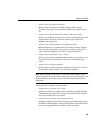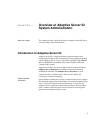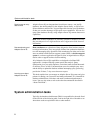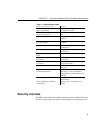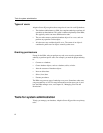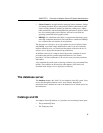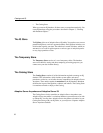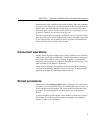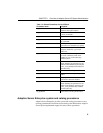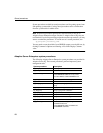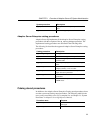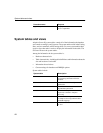
CHAPTER 1 Overview of Adaptive Server IQ System Administration
7
Anywhere tables have a different format than IQ tables. While the commands
you use to create objects in an Anywhere database are the same as those for an
IQ Store, there are some differences in the features you can specify in those
commands. Always use the command syntax in this book or the Adaptive Server
IQ Reference Manual for operations in the IQ Store.
This book explains how you manage your IQ Store and its associated Catalog
Store. If you have an Anywhere database, or if you have Anywhere-style tables
in your Catalog Store, see the Adaptive Server Anywhere documentation for
details of how to create, maintain, and use them.
Concurrent operations
Adaptive Server IQ allows multiple users to query a database at the same time,
while another user inserts or deletes data, or backs up the database. Changes to
the structure of the database, such as creating, dropping, or altering tables,
temporarily exclude other users from those tables, but queries that only access
tables elsewhere in the database can proceed.
Adaptive Server IQ keeps your database consistent during these concurrent
operations by maintaining multiple versions of table data. To understand this
approach, see Chapter 8, “Transactions and Versioning”.
Stored procedures
Adaptive Server IQ stored procedures help you manage your system. Stored
procedures give you information about your database and users, and carry out
various operations on the database. This section briefly describes the stored
procedures. For more information, see the Adaptive Server IQ Reference
Manual.
A stored procedure typically operates on the database in which you execute it.
For example, if you run the stored procedure
sp_addlogin in the asiqdemo
database, it adds a user to
asiqdemo.



